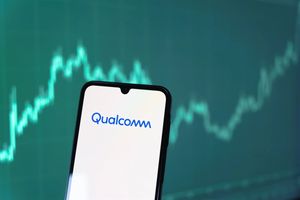
Neurogene (NASDAQ: NGNE) stock just took a sharp dive, plummeting 44% in a single day.
Bad news on Monday caused the pharmaceutical company’s shares to drop massively in after-hours trading, and they continued to slide through Tuesday. So, what was it that sent shares of Neurogene, a stock that was up 269% year-to-date, plummeting? And more importantly, is all hope lost for this clinical-stage biotech company, or is there still a chance it can have commercial success?
Breaking Down Neurogene’s Developmental Treatment Areas
Neurogene focuses on two main diseases: Rett Syndrome and CLN5 Batten Disease. Both conditions can cause impairments to motor skills, speech, and cognitive function. The Food and Drug Administration (FDA) has not currently approved any treatments that can reverse the course of either disease.
However, in 2023, Acadia Pharmaceuticals (NASDAQ: ACAD) received approval for the drug DAYBUE to treat symptoms of Rett Syndrome. Through the first nine months of 2024, sales of DAYBUE were $252 million, up 179% from the same period in 2023. Acadia expects full-year sales to be between $340 million and $350 million. This is important to know when considering Neurogene's revenue potential in Rett Syndrome. One analyst estimates the Rett Syndrome addressable market is worth around $2.5 billion.
The One-Two Punch That Sank Neurogene's Shares
Neurogene hit investors with a double whammy of bad news on Monday. First, the company released results from the Phase 1/2 trial of its Rett Syndrome treatment, NGN-401. Neurogene administered both low and high doses to patients, and, unfortunately, researchers associated the high dose with a serious adverse event (SAE).
Researchers gave the high dose to only three patients, one of whom experienced an SAE, resulting in a 33% incidence rate. That is a high percentage and is not a good sign for the future of the high dose. However, the company will continue testing the high dose on three more patients.
Additionally, Neurogene announced it would not move forward with its treatment for CLN5 Batten disease. The FDA denied the company’s application to streamline the process due to the rarity of the disease. Without that streamlining, it seems that Neurogene views pursuing the treatment as uneconomical.
That leaves Neurogene hoping for success with the low-dose NGN-401 for Rett syndrome. And this is where the story becomes much more optimistic.
The Other Side of the Neurogene Coin: Low-Dose Efficacy Data
The results for the low-dose NGN-401 treatment are why analysts at Bank of Montreal called the drop in Neurogene’s shares a “likely overreaction." First off, researchers showed it to be safe; five patients did not experience an SAE. Also, any adverse events (AEs) experienced were known risks that doctors were able to treat. And the efficacy data is far more interesting, showing several highly encouraging signs.
All low-dose participants received a rating of “much improved" on the doctor-rated Clinical Global Impression Scale of Improvement. Experts consider this result clinically meaningful. Caregivers of the patients also completed the Rett Syndrome Behavior Questionnaire. It showed improvements in patient behavior ranging from 28% to 52% from the baseline.
In addition, researchers found that all patients gained a skill or reached a developmental milestone that those with Rett Syndrome can rarely achieve or regain once lost. The company went on to state that the improvements deepened over time.
Neurogene’s main competition is Taysha Gene Therapies (NASDAQ: TSHA). Taysha also released some Phase 1/2 results for its Rett Syndrome treatment. Its results were also viewed as positive, but they are difficult to compare to Neurogene's, as they did not use the same types of measurement.
Overall, the Neurogene price drop appears to be an overreaction. The company has a big opportunity if it gets its Rett Syndrome treatment approved. Still, the results so far provide no guarantee that it will. The company will release more results of its Phase 1/2 trial in the second half of 2025.





